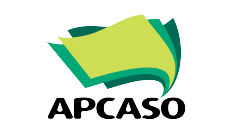by Achut Sitaula, Trisuli Plus (with support from Mayra Rai, APCASO)
Civil society engagement and mobilization is key for ensuring TB response is on track, directly resulting in the targets uptaken by Nepal. The target population and focus of the country’s TB response included TB survivors and community health providers, in keeping with the Accessibility, Acceptability, Availability, and Quality (AAAQ) Framework. At the country level, the regular mentorship and capacity building of TB-affected communities and TB survivors act as a supporting factor for advocacy and mobilization in regards to community, rights, and gender (CRG) issues.
While several existing facilities have been engaged to influence and shift towards a TB response that addresses CRG issues, it was acknowledged that a key element, which is organizing a TB survivor and affected community group, continue to face challenges due to due to lack of TB awareness and cultural roles and influence such as myths overpowering empirical approaches to TB response, have become more prevalent. It is also required to establish a gender sensitive approach within the country.
Through Trisuli Plus with the help of APCASO, the Stop TB Partnership’s Challenge Facility for Civil Society 9 grant, the “Right to Breath” Project was taken up. The goal of this project was to build the capacity and to mobilize a resilient community of individuals affected by and working on TB response. This is with the intent to further create a people-centered atmosphere, community-led and a rights based approach. This all would be able to ensure fund allocations and project implementations are enhanced.
The project had three main objectives to follow up on:
- Identify and strengthen fundamental human rights amongst TB survivors, communities, and its leaders.
- Distribute training manuals to survivor groups; that has been carried out in other districts in Nepal already.
- Establish a group of individuals and organizations that will serve as the pioneering constituency of ACT Nepal.
With the help of the grant, several activities were carried out on a national level. This includes an inception meeting and an orientation: both allowing key stakeholders to be informed of the project. Such meetings were also held alongside TB survivors but also with the World Health Organization (WHO), National Tuberculosis Center, DOTS focal persons from the District Health Office and others. Ensuring that such meetings run smoothly, facilitator training modules were implemented as well enhancing knowledge in regards to the TB response and human rights using the “Right to Breathe” training manual that was translated into Nepali language. To tie this together, regular oversight and mentorship upon the TB survivor groups was present to significantly help organize and mobilize TB communities to lobby with Nepali authorities.

Coordination meeting with different stakeholders at District Health Office in Aacham together with the National TB and HIV and AIDS programs. Trisuli Plus, April 26, 2021.
These activities were conducted between the first and second wave of COVID-19. While COVID-19 did not directly impact any results that our organization wanted to achieve, the priorities of the government and civil society were often diverted during the pandemic and it became increasingly difficult to support the groups. Takeaways from these activities include that evidence may be the first step towards assembling TB survivors, strengthening TB survivors capacity, and allowing them to engage and perhaps influence the jurisdiction. This is in terms of policy planning, reflecting CRG issues in national programs, budget allocation, and implementation.
Our organization was also able to share the relevance of our project to several stakeholders working on TB in the country: DOTS focal persons from 10 Districts health offices, 4 representatives from the National TB program, 2 from CCM and 3 from TB Global Fund Sub-recipients. This strengthened relationships between Trisuli Plus and these stakeholders, more specifically the DOTS focal persons who have allowed us to gain access to TB communities, survivors, and their families as well.
The access to TB services did indeed increase through the help of the grant. Accessibility was present in the form of TB survivor support groups creating an enabling atmosphere at the community level, in at least 10 service sites in 10 different districts. Not only that, but a huge barrier that is present in Nepal is the understanding that medicines provided are the only piece of knowledge those affected by TB should be concerned about. The TB support groups advocated for their rights and concerns with the TB response to bring light and awareness with the presence of DOTS focal persons. For example, some incidents of discrimination was brought up to health care providers by groups themselves which is able to showcase mobilization and empowerment of the TB survivor groups. In addition, other districts were reaching out to express their interest in creating support groups as well, portraying the impact of the grant.

Interaction meeting with Provincial TB focal person, district health office and other local organizations in Dadeldhura district for sharing about national TB program. Trisuli Plus, April 27, 2021.
Conclusively, our organization mobilized Country Coordinating Mechanism (CCM) members representative of those living with TB to influence proposal writing for the Global Fund 2020-2021 cycle. This was due to the advocacy component allowing CRG issues to be included in the funding application. TP utilizes this as an opportunity to influence and strengthen the policy planning for human rights based approaches, and gender based violence included in the National TB strategy. Following this grant, some provincial governments have already started allocation of resources based on the support of the TB activities.
